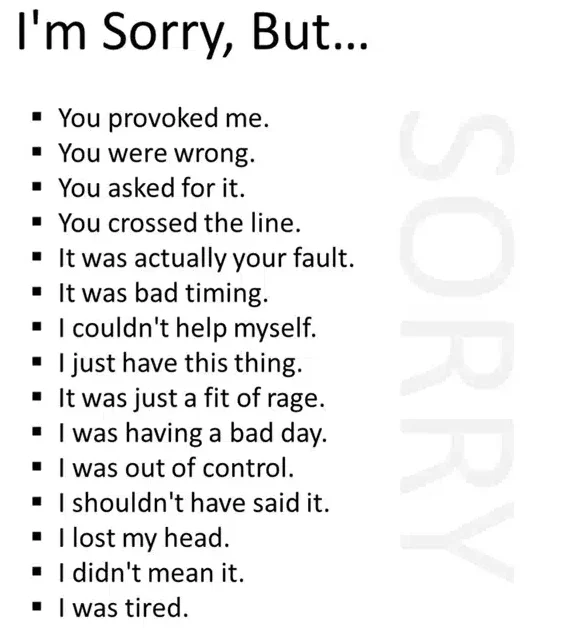
I’m not a fan when someone says “I’m sorry, but…” It makes me feel like they’re not really sorry. Or that they think somehow I’m to blame for something they did to hurt me. Yes, I’ve probably done it to someone as well, so I’m trying to get better at analyzing my apologies.
Apologizing is hard. It makes us uncomfortable and vulnerable. Who wants to do that on purpose??
When you make an apology that starts with “I’m sorry, but…,” you not only seek to duck responsibility, but you also suggest the harm could happen again. For example, if you say, “I’m sorry, but I was having a miserable morning,” the other person could wonder if you’ll repeat your behavior when you have another bad day. Another classic is, “I’m sorry, but I didn’t mean it.”
